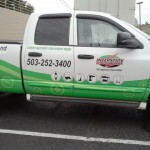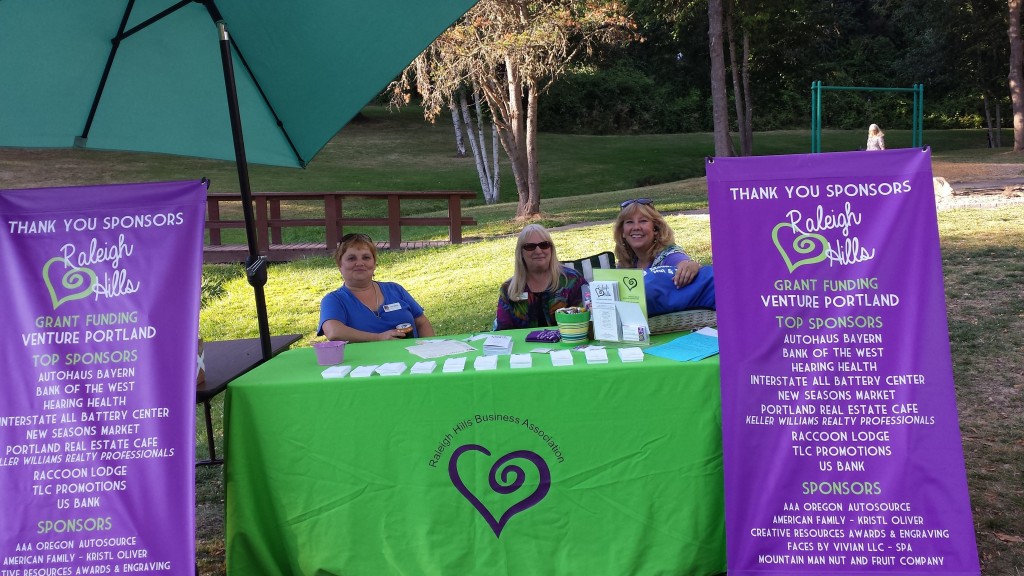PAST EVENTS 2014-15 Misc.
2015 SHRED EVENT
In the United States over 40,000 tons of plastic and metal is saved from landfills annually as a result of cartridge recycling. For every 100,000 used cartridges recycled, we can save 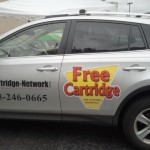 1,000,000liters of oil. Ink cartridge recycling has virtually become synonymous with successful sustainable development. Griffin Hampson from Cartridge Network processed over 150 cartridges that folks brought in to the SHRED EVENT and is quite pleased with the turnout.
1,000,000liters of oil. Ink cartridge recycling has virtually become synonymous with successful sustainable development. Griffin Hampson from Cartridge Network processed over 150 cartridges that folks brought in to the SHRED EVENT and is quite pleased with the turnout.
E-waste is the most rapidly growing segment of the municipal solid waste stream. Moreover this waste contains valuable materials such  as aluminum, copper, gold and silver. In order to conserve natural resources and the energy needed to produce new electronic equipment from virgin resources, electronic equipment can be refurbished, reused, and recycled instead of being landfilled. What is called “E-waste” also contains toxic and hazardous materials including mercury and lead which have the potential to leach into our soil and water.
as aluminum, copper, gold and silver. In order to conserve natural resources and the energy needed to produce new electronic equipment from virgin resources, electronic equipment can be refurbished, reused, and recycled instead of being landfilled. What is called “E-waste” also contains toxic and hazardous materials including mercury and lead which have the potential to leach into our soil and water.
Frankie Bax reported that Eco Binary received over 1300 pounds of electronics.
At some point every business has to dispose of confidential information. Customer lists, confidential client information, credit card and sales receipts, personnel and 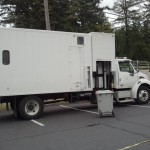 payroll records all need to be kept secure. Both your customers and employees have the legal right to have this information protected. This provides some security for identity theft. Our paper shreader processed over 2 and a half tons of paper. Last year we were just a few pounds over 2 tons so that is a significant improvement. The truck will shred 9 tons so we have a way to go for next year.
payroll records all need to be kept secure. Both your customers and employees have the legal right to have this information protected. This provides some security for identity theft. Our paper shreader processed over 2 and a half tons of paper. Last year we were just a few pounds over 2 tons so that is a significant improvement. The truck will shred 9 tons so we have a way to go for next year.
Batteries are made from a number of different materials including acid, lead, nickel, lithium, cadmium, alkaline and nickel metal hydride. Tossing your batteries in the trash sends them to an incinerator or landfill where their casing can disintegrate, releasing this toxic mix into our environment. Annette Fernald of Interstate All Battery collected 760 lbs of batteries of all sizes and shapes and has disposed of them in a safe manner
The 10 Safe Computing Tips Are
- Patch, Patch, PATCH!
Set up your computer for auto patching. An un-patched machine is more likely to have software vulnerabilities that can be exploited. - Install protective software.
Software is available as a free download for Windows, Macintosh, and Linux. Commercial software from Naorton McAfee and others. - Choose strong passwords.
Use letters, numbers, and special characters to create a mental image or an acronym that is easy for you to remember. Create a different password for each important account, and change passwords regularly. - Backup, Backup, BACKUP!
Backing up your machine regularly can protect you from the unexpected. - Control access to your machine.
Don’t leave your computer in an unsecured area, or unattended and logged on, especially in public places. - Use email and the Internet safely.
Ignore unsolicited emails, and be wary of attachments, links and forms in emails that come from people you don’t know. - Use secure connections.
When connected to the Internet, your data can be vulnerable while in transit. - Protect sensitive data.
Reduce the risk of identity theft. Securely remove sensitive data files from your hard drive, which is also recommended when recycling or repurposing your computer. - Use desktop firewalls.
Macintosh and Windows computers have basic desktop firewalls as part of their operating systems. When set up properly, these firewalls protect your computer files from being scanned. - Most importantly, stay informed.
Stay current with the latest developments for Windows, Macintosh Linux, and Unix systems.
Stay Safe and watch for other items of interest as we discuss Emergency Preparedness for 2015
Neighborhood Night Out
Tuesday August 5 Was a fun for all night getting acquainted with our neighbors and with the community services team from Washington County. A big thanks to Lee Blevins of the Washington County Sheriff’s Office for priming the pump for this project. Pictured below representing RHBA are Liz Utter – New Seasons Market, Robin Curtin – Univera and Diane Snedecor – Mountain Man Nut and Fruit Co. Thank you ladies for your dedication and thank you to all who turned out.
June 11, 2014 RHBA Annual Meeting
April 26, 2014 Shred Event Raleigh Hills
Our first Shred Event was a huge success. We send a bigh thank you to AAA Autosource for the use of their parking area on Saturday for the event. The cars were lined up even before the truck arrived for the event and we were taking boxes and sacks from folks to dump just as soon as they arrived. A special thank you to Diane Snedicor of Mountan Man Nut and Fruit as well as Mary Sherman of Sherman Properties for their sponsorship in the event. The rain was held at bay while we toiled away at shredding over 4000 pounds of unwanted paper items form more people than we could count. We all get a ton of junk in the mail, credit card applications, insurance packets, a retirement fund  report from 10 years ago and more. Thankfully, deciding what to keep is simple, and once you do you can shred pretty much everything else. In general, you want to keep physical copies of anything related to state or federal matters, such as certifications, licenses, or deeds. The reason is twofold: you want to have easy access to these in case you need them, and they’re also a pain to replace because you typically need to make a direct request to the government agency, which takes a lot of time.
report from 10 years ago and more. Thankfully, deciding what to keep is simple, and once you do you can shred pretty much everything else. In general, you want to keep physical copies of anything related to state or federal matters, such as certifications, licenses, or deeds. The reason is twofold: you want to have easy access to these in case you need them, and they’re also a pain to replace because you typically need to make a direct request to the government agency, which takes a lot of time. 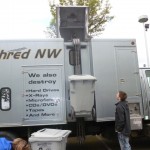 Everything else you have you can safely shred. You should shred anything that has personal information like your name, address, phone number, social security number, or bank account information. This might include a few documents you don’t initially think about, including ATM receipts, credit card receipts, bills, and even used airline tickets. You should also immediately shred expired credit cards, visas, passports, and IDs.
Everything else you have you can safely shred. You should shred anything that has personal information like your name, address, phone number, social security number, or bank account information. This might include a few documents you don’t initially think about, including ATM receipts, credit card receipts, bills, and even used airline tickets. You should also immediately shred expired credit cards, visas, passports, and IDs.
